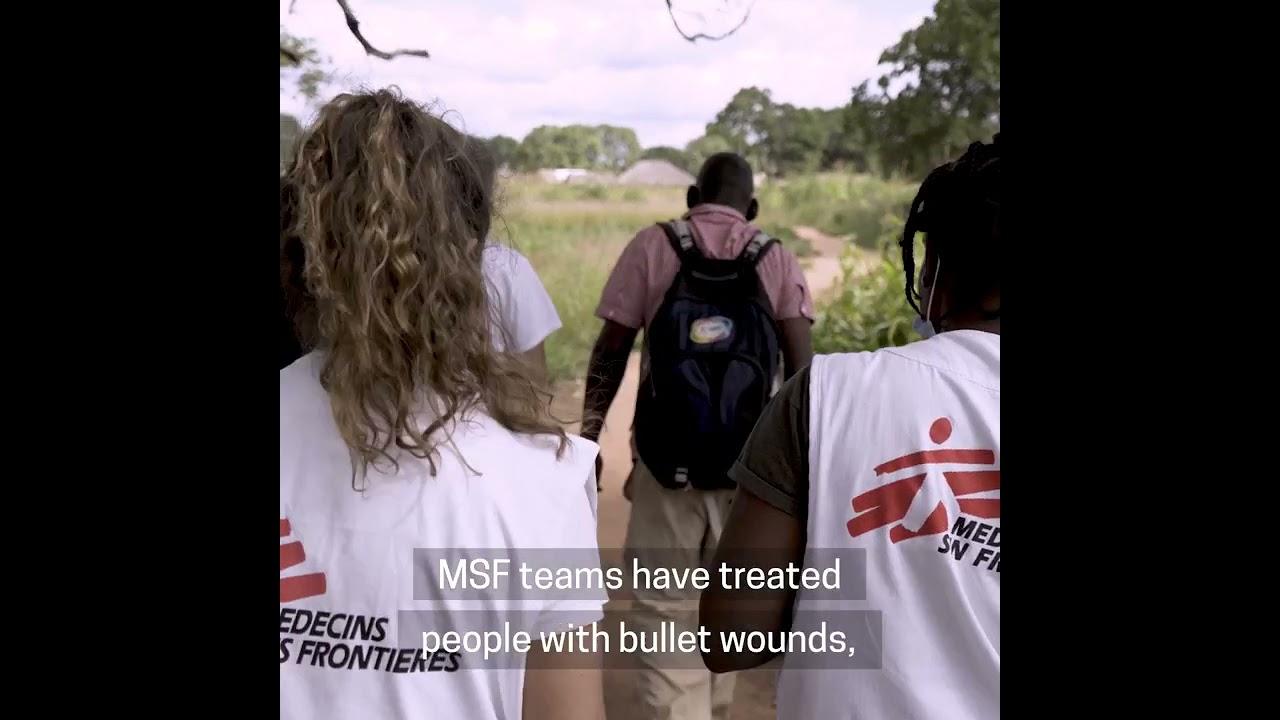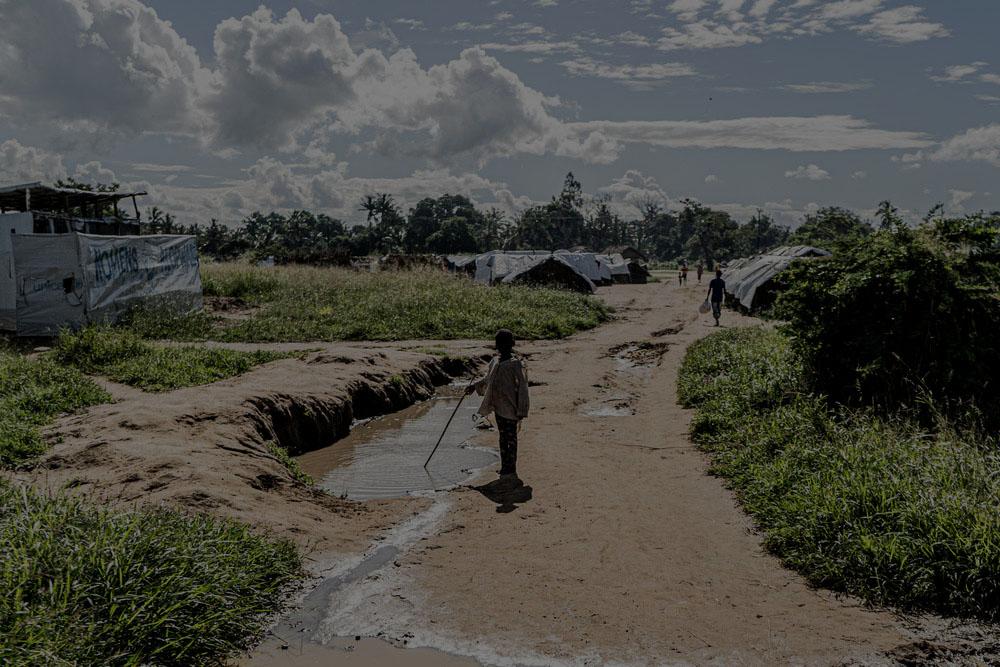
MSF Crisis Info: Cabo Delgado
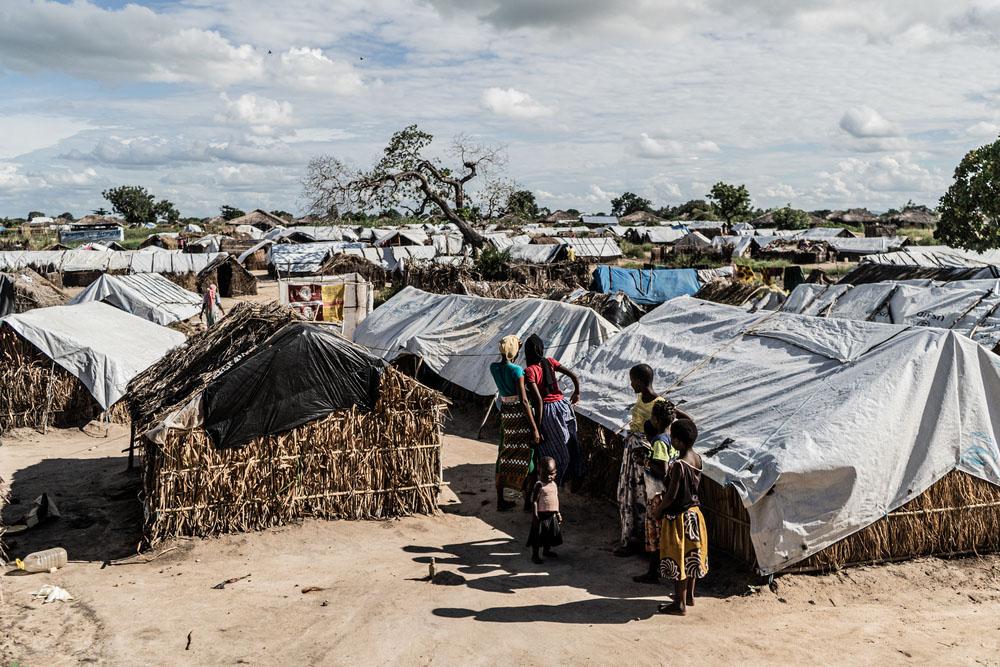
MSF has been present in Cabo Delgado since February 2019. We responded to the aftermath of Cyclone Kenneth, which made landfall in April 2019. MSF then ran medical and WASH activities in Mocimboa da Praia and Macomia until we were forced to suspend activities from Mocimboa de Praia in March 2020 and from Macomia in May 2020 after a NSAG took control of the towns.
Today MSF [OCBA, OCB] provides healthcare, including mental health, to the people displaced by the conflict and to the host communities by supporting health centres and cholera treatment centres and by running mobile clinics. Non-Food Items’ distributions (such as plastic sheets for shelter, mosquito nets, hygienic sets, cooking sets and tools for farming) have also been done for people living in temporary settlements who have escaped from their villages with nothing but their clothes. Water supply is organized to improve access to clean water and sanitation is also improved through the construction of latrines.
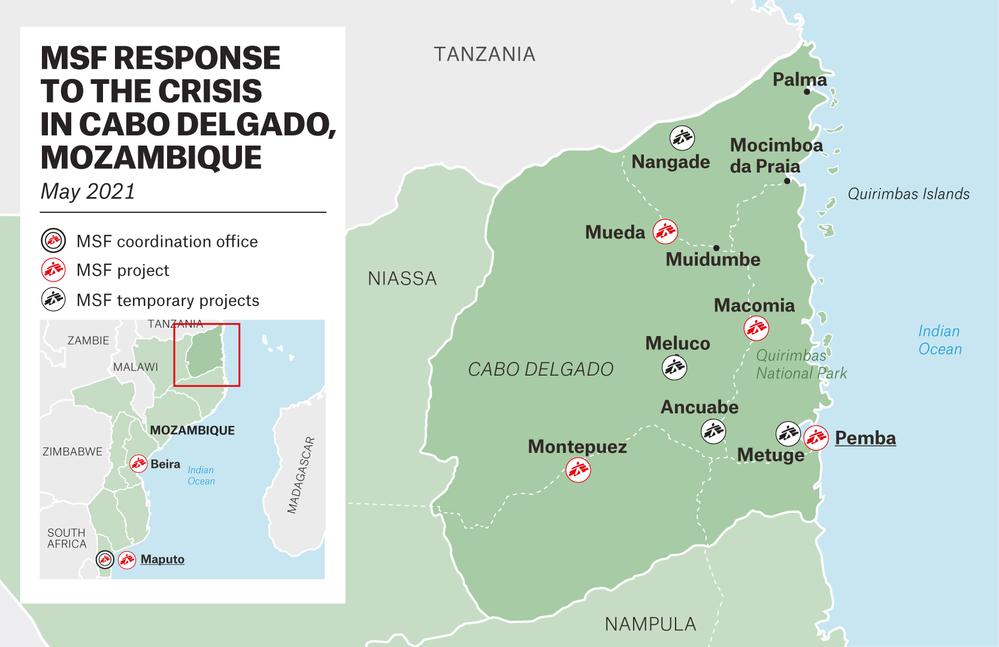
Projects
Metuge
MSF is running three mobile clinics to provide primary health care consultations, screening and treatment of patients with Moderate Acute Malnutrition (MAM) and referral of patients with Severe Acute Malnutrition (SAM) when needed. The mobile clinics are operating in the temporary camps of 25 de Junho, Ngalane, Nangua, Taratara, Impiri and Ntocota.
A total of 16,196 consultations have been performed for the last 3 months. The monthly average is about 5 000 consultations per month. The main pathologies are malaria, upper respiratory tract infections and non-bloody diarrhoea (442).
MSF has been implementing water and sanitation (WASH) activities, and particularly in building latrines and providing water supply in Metuge district. WASH assessments have been finalized and will lead to a significant development of water supply activities in the southern districts, mainly Metuge, Pemba and Ancuabe (handpump rehabilitation, borehole drilling, and well protection). MSF is also providing support to three cholera treatment centres.
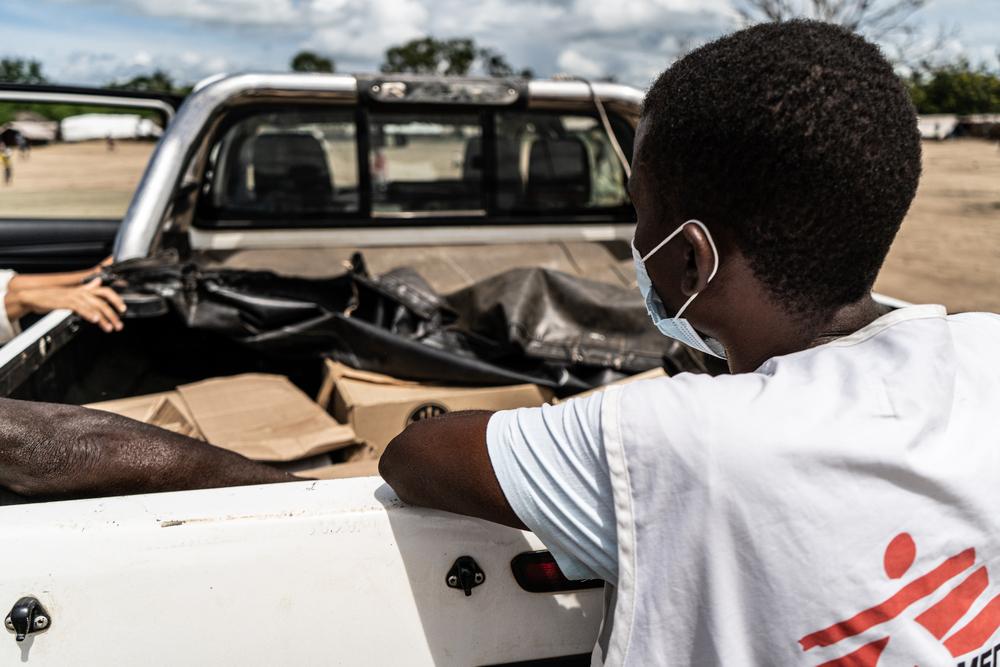
Macomia
MSF provides medical care with 3 nurses and 3 community health workers and a system of medical referrals. Health Promotion activities have also started together with a water project, including handpump repairs and new handpump installation.
Montepuez
MSF started in December 2020 by first supporting the cholera treatment centre of the town as well as the Nihula Health Centre, Mapupulo Health Centre and the Rural Hospital as well as the areas where IDPs were gathering in Nicuapa and Mapupulo. MSF provides medical Consultations and makes referrals of serious cases; provides individual and family psychological first aid sessions and counselling sessions; carries out health promotion about diarrhoea, malaria, COVID-19, HIV and malnutrition; supports community health workers in Montepuez district, including with a motorbike-ambulance referral system; carries out water, food, NFI and mosquito net distributions; implements WASH activities and supports the inpatient department of the paediatric ward of the Rural Hospital with a nurse.
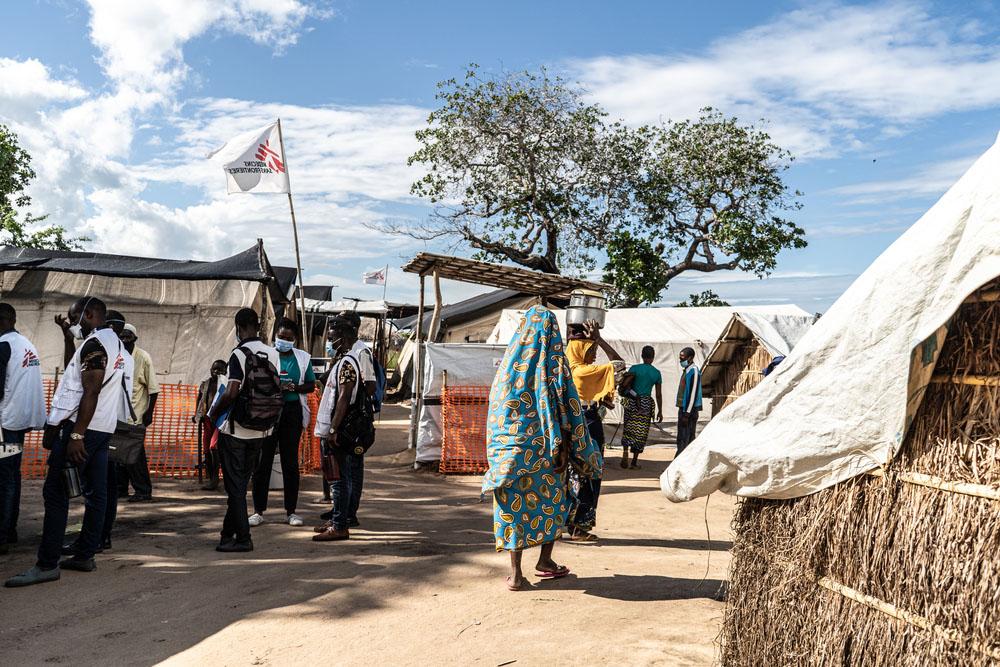
Mueda
Emergency assistance is provided to newly arrived IDPs or those passing through. MSF is also supporting Mpeme and Namatili health centres and the Rural Hospital OPD.
Nangade
MSF is supporting the 3 health centres that remain open and provides first assistance to new arrivals in Nangade sede, with transit kits and food.
Temporary interventions
Ancuabe
MSF has drilled boreholes and distributed non-food items (1,000 HH/3,900 IDPs) and hygiene kits (917), as well as training for traditional midwives and Health Community Workers (APEs). MSF has also implemented health promotion activities - sensitization of communities about Water, Sanitation and Hygiene.
Meluco District
MSF has distributed non-food items in Meluco, Muagide and Iba and provides support to community health workers in the district with training and support to a motor-ambulance referral system. Support is also provided to the Muagide Health Centre.
Namuno District
MSF has been providing support to the Cholera Treatment Centre in Manuno sede.
Balama District
MSF provided to community health workers, including with a motorbike ambulance referral system.
In addition to this access to safe water has been provided along with the distribution of non-food items.
Pemba
MSF provides medical and mental health support to a few hundred IDPs who fled the attacks of March 2021 in Palma and arrived at the stadium in Pemba.
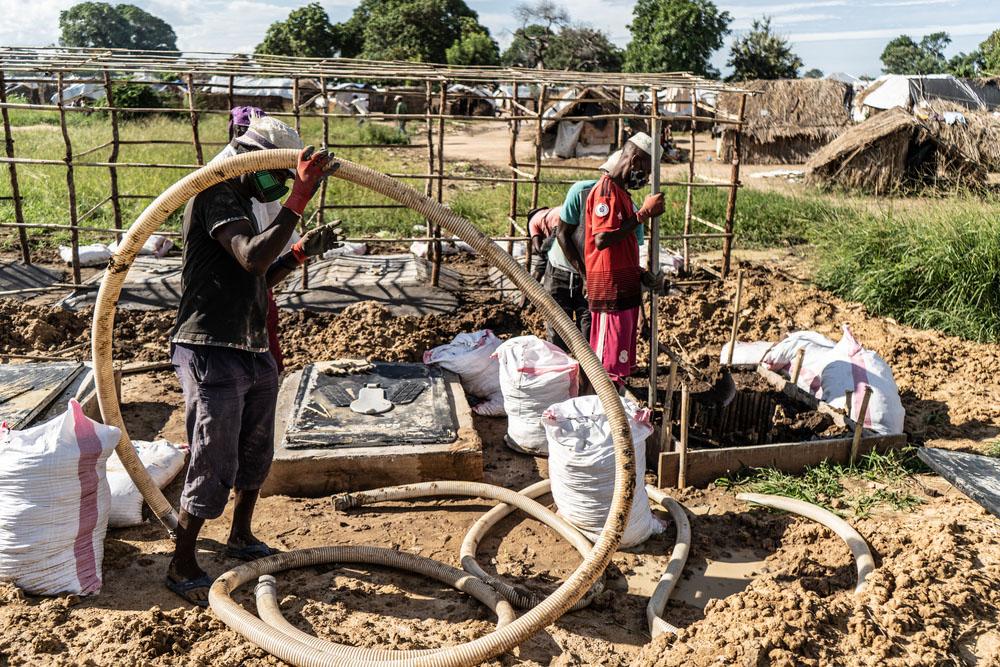
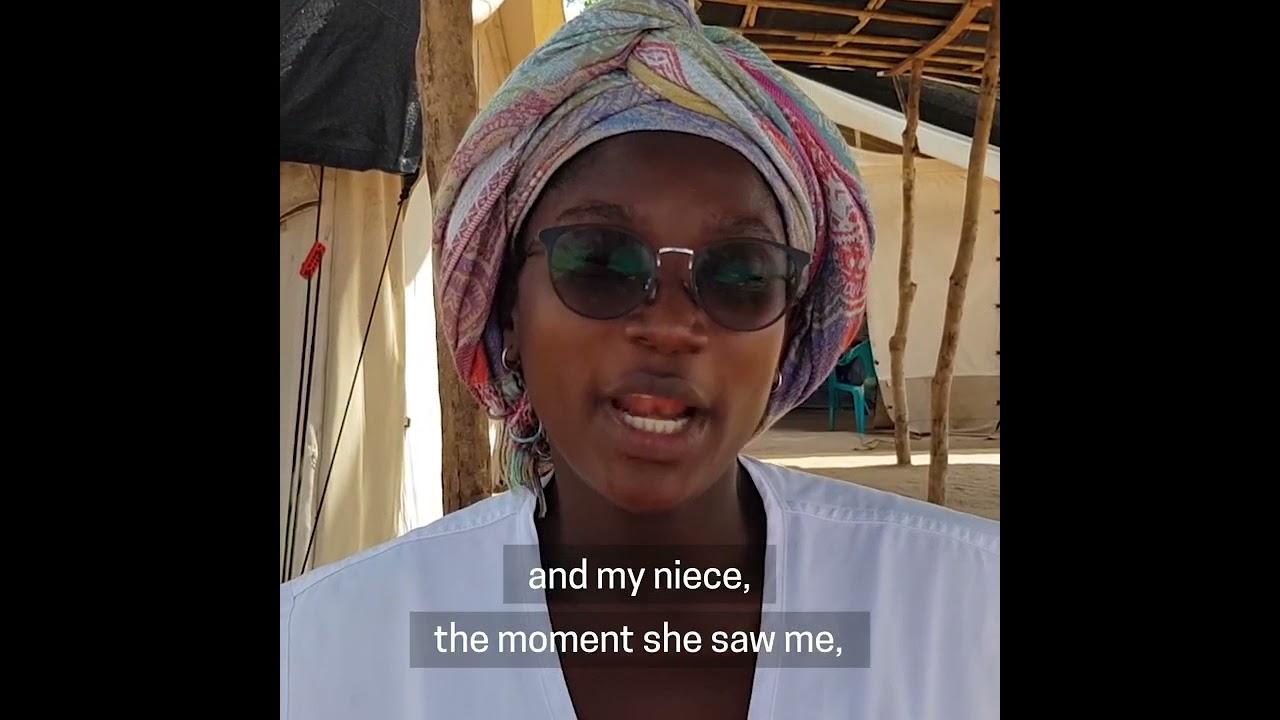
CABO DELGADO, MOZAMBIQUE: Eufrasia tells her family story
The recent attacks in Palma are illustrative of the violence that the population has been exposed to during the conflict in Cabo Delgado, which has been increasing in intensity and spreading over the last year. In Palma, as in many previous attacks, violence-hit members of the community, including women and children, and thousands of people were forced to flee for their lives while others remained trapped in the settlements nearby the Afungi gas compound (Quitonda and Maganja). Those who have returned to Palma city continue to face insecurity.
The number of people displaced by the conflict in Cabo Delgado is increasing quickly and without a halt. Nearly 700,000 people, or nearly a third of the population of the province, have been already displaced, many of them multiple times and enduring a very difficult journey until reaching safety, often fleeing with just their clothes through the sea or inland through the bush, seeing dead bodies along the way and surviving with the very little food and water they could find.
Most internally displaced people stay in homes of family and friends. This is adding pressure to many villages and towns in Cabo Delgado. While humanitarian assistance is largely targeting IDPs in temporary resettlement camps, host communities that offer shelter to displaced families struggle to meet their basic needs, including food, water, sanitation, protection, and healthcare, and they often live in precarious, overcrowded and unhygienic conditions that create the perfect environment for the spread of diseases. IDPs seeking shelter in the reallocation sites have often to wait for weeks in transit areas until they are allocated a space. The growing demand for assistance has outpaced the capacity of local government services and civil society organisations in Cabo Delgado. It is crucial to urgently scale up the provision of aid.
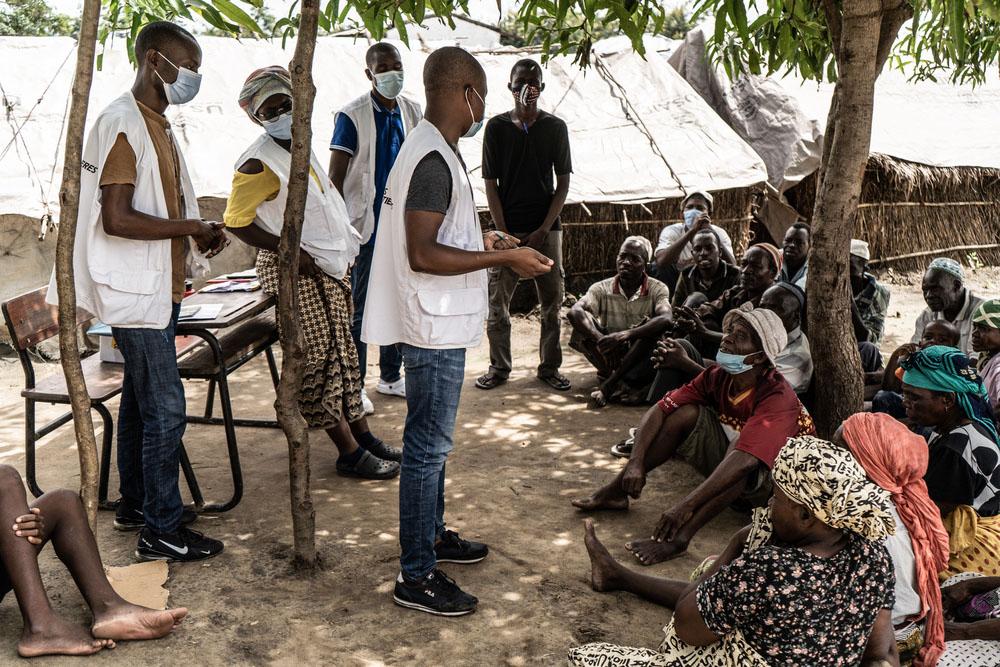
People affected by the conflict in Cabo Delgado have endured extremely high levels of violence and trauma. Families have been separated, many have lost dear ones, homes or their sources of livelihood. Even those who have fled are not guaranteed safety and continue to live in fear of further attacks. The conflict has had a tremendous psychological impact on communities; however, Cabo Delgado lacks formal mental health programmes to address these needs.
Dozens of health facilities have been destroyed and others are not functional now in the areas directly hit by the conflict because health staff left. Drug supply is also a constant challenge due to dangerous roads susceptible to attack. In the areas where displaced people are arriving, health structures are overwhelmed as they don’t have enough personnel or medicines.
Critical national health programs have been disrupted threatening the life and the medical condition of thousands. HIV, TB, malaria, antenatal and routine and cholera vaccinations have been affected.
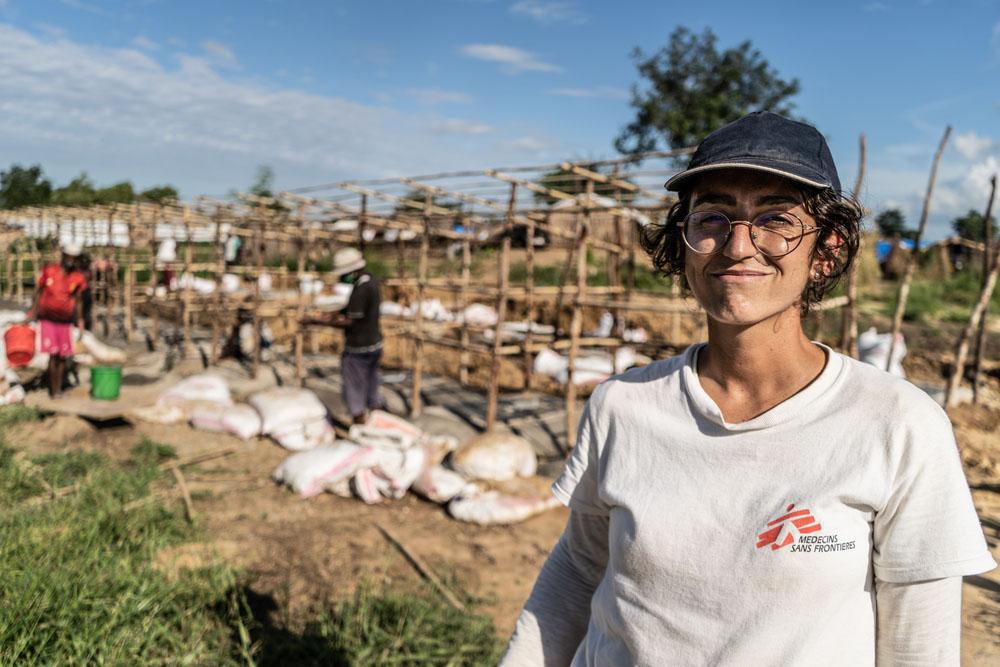
MSF has been working in Mozambique since 1984. For more than 30 years, MSF has been responding to health and humanitarian emergencies countrywide, including HIV/TB, malnutrition, malaria, cholera, natural disasters, COVID-19 and the needs of people affected by conflict. In Cabo Delgado, we continue to fill gaps in healthcare and respond to emergencies in both the host population and the growing displaced communities, often in collaboration with health authorities and other partners.
Our ongoing activities [OCG, OCBA, OCB] range from providing primary healthcare to displaced people in the settlements of 25 de Junho and Nangua through mobile clinics and responding to emergency disease outbreaks like cholera in Montepuez and Metuge, to providing HIV care to key populations in Beira and harm reduction packages to drug users in Maputo.
